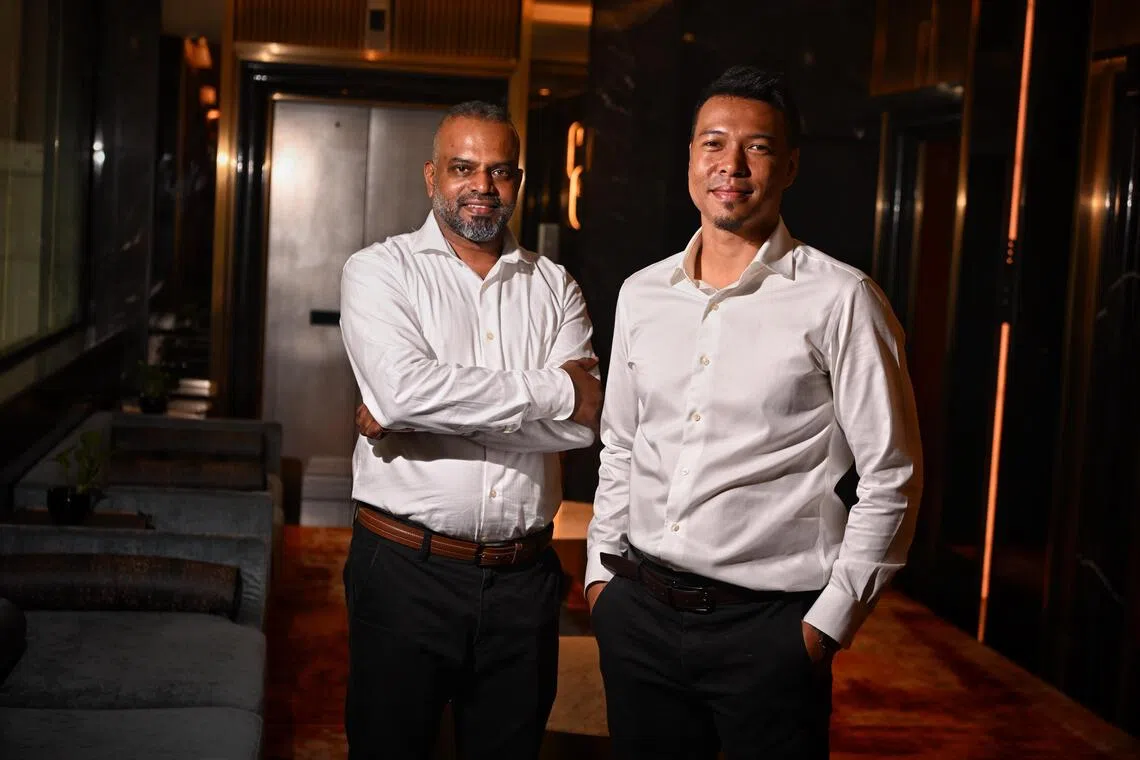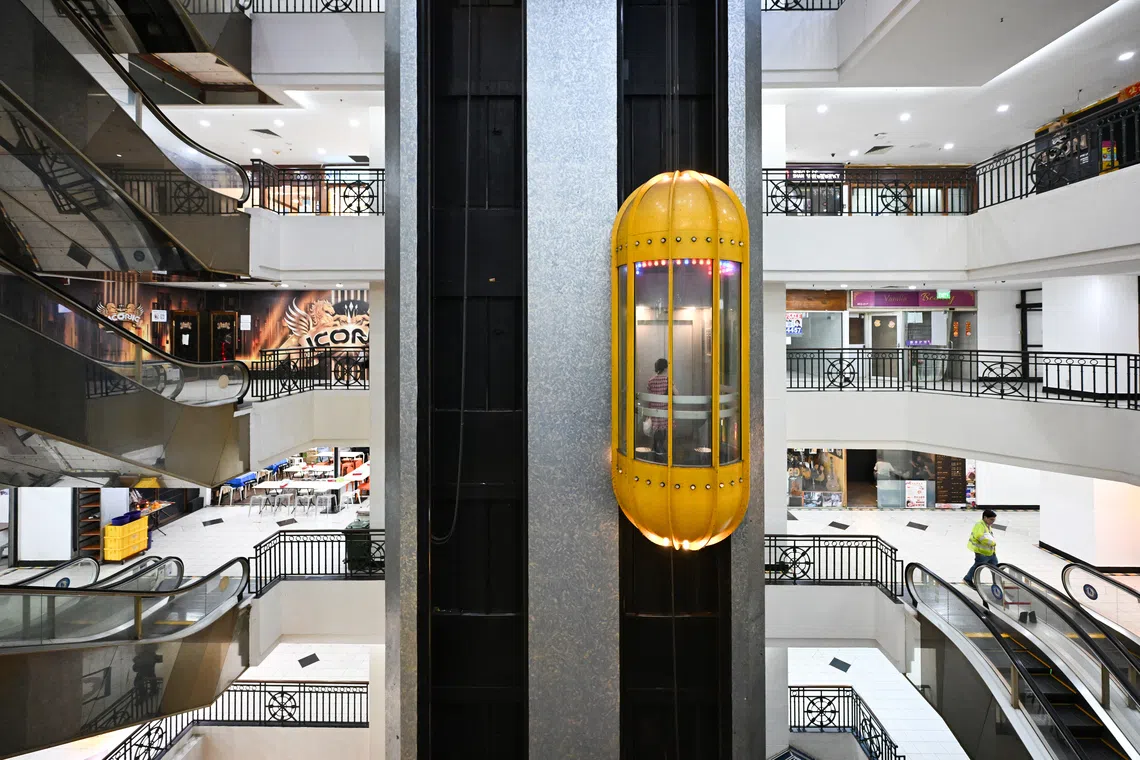More technology, higher pay draw younger and more Singaporeans to lift industry
Sign up now: Get ST's newsletters delivered to your inbox

Award recipients of the inaugural Lift and Escalator (L&E) Excellence Awards Mr Ganesh Prasad Vasudevan (left), a troubleshooter at KONE, and Mr Muhammad Zulkarnaen Hashim, a senior L&E specialist at Hitachi Elevator Asia.
ST PHOTO: AZMI ATHNI
- Singapore's lift and escalator industry sees a rejuvenation with a younger workforce; the median age had dropped from 46 to 40 since 2023.
- Wages have increased significantly, with a 14 per cent rise in 2024 and a 10 per cent rise in 2025, boosting Singaporean participation by 7 per cent.
- The Progressive Wage Model is credited for the turnaround, and technology has lifted the profession.
AI generated
SINGAPORE– Singapore’s lift and escalator industry is becoming younger and better paid, with the median age of local workers falling from 46 to 40 in just two years from 2023.
Median wages also rose by an average of 14 per cent in 2024 and 10 per cent in 2025 across all job levels, including technicians, troubleshooters and supervisors.
This has resulted in a 7 per cent increase in Singaporeans working in the industry since 2023.
The figures signal the revival of a sector that has suffered years of manpower shortage due to perceptions of low pay, long work hours, and being high-risk and low-skilled.
About 1,300 Singaporeans are working in the sector, which industry players say has many work pass holders.

Across Singapore, there are about 79,000 lifts and 7,900 escalators.
ST PHOTO: LIM YAOHUI
Minister for National Development Chee Hong Tat, speaking at an inaugural awards event for the industry on Nov 26, cited the Progressive Wage Model (PWM) as a factor for the turnaround.
Under the scheme introduced in 2022 for Singaporean workers, an assistant lift and escalator specialist could earn a minimum of $2,525 in basic monthly wage, while a principal lift and escalator specialist could earn at least $3,590.
Besides mandating that firms adopt fair wage and skill competency practices for company registration, the scheme provides career road maps to prepare maintenance workers for supervisory or technical roles.
Across Singapore, there are about 79,000 lifts and 7,900 escalators.
On how the workers are being upskilled, Mr Chee said technicians today deploy remote lift monitoring and diagnostics, as well as an artificial intelligence-powered technician assistant from Finnish firm KONE.
Its multilingual AI assistant app, developed in Singapore with support from the Economic Development Board, has cut call-outs by 6 per cent and reduced cases to the technical helpdesk by around 30 per cent since its launch in May, the firm said.
KONE, which created the AI technician assistant in its innovation lab here, one of its four in the world, plans to introduce it to other markets.
At the event held at Orchard Hotel, Mr Chee presented plaques to 15 supervisors and specialists for their safety track records, leadership, technical mastery, tech adoption and continuous learning.
“As our infrastructure ages and new technologies emerge, the entire industry must transform so as to stay resilient, raise productivity and uplift the profession,” he said.
The inaugural event was organised by the Building and Construction Authority, Singapore Lift and Escalator Contractors and Manufacturers Association, National Trades Union Congress (NTUC), and NTUC’s Employment and Employability Institute (e2i).
One winner, Mr Muhammad Zulkarnaen, a 40-year-old senior specialist at Hitachi Elevator Asia, left his job as a motorbike mechanic to join the lift sector 18 years ago.
At the time, he would clock overtime hours to bump up his take-home pay.
Now a father of three children aged eight to 15, he said the wage gains better reflect the industry’s expertise. He was recognised for his zero-incident track record, mentorship and leadership of his 16 maintenance technicians.
“This is a skilled job, just like that of a car mechanic. Not everyone can troubleshoot what’s wrong with the vehicle,” he said.
“It’s the same for us, not everyone can troubleshoot the elevator or escalator. So the pay has to be up there for people to do this job. It is physically and mentally demanding.”
Since the progressive wage scheme started, Mr Ganesh Prasad Vasudevan, a 48-year-old troubleshooter at KONE, has had his salary adjusted twice in the past three years.
He started as an apprentice 25 years ago. He hopes the annual event continues to give recognition to more of his peers.
His wife, a pre-school teacher who was at the ceremony, said she and their 15-year-old daughter felt very proud. “We, the family members, feel like, ‘Wow, if he can do it, why not us?’”



